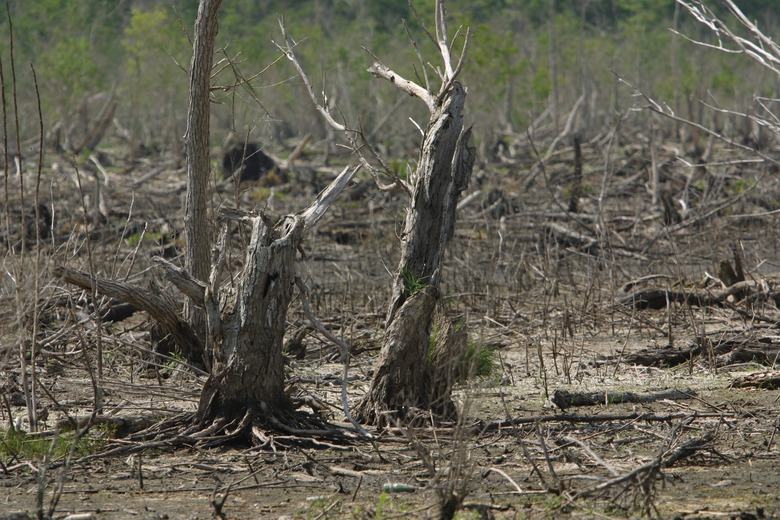The Disadvantages Of Deforestation
Deforestation has always been an extremely contentious political topic, with vast swathes of the world's forests being sacrificed to fuel growth across the world. Environmentalists have argued that widespread deforestation could have grave consequences for the world if it is allowed to continue at its current rate.
Destruction of Habitats
Destruction of Habitats
Deforestation destroys the habitats of thousands upon thousands of animals and plants that rely on the forests to provide them with the correct nutrients and environment. Deforestation has already led to the extinction of numerous species, something which can wreak havoc on the food chains in forested areas and upset the ecosystems that exist. Each tree that is cut down is home to numerous species of animals and plants, each of which relies on the habitat the tree provides to survive. Deforestation is believed to have contributed heavily to the extinction of the Bali Tiger.
Soil
Soil
Deforestation can have a catastrophic effect on the soil in areas where it is carried out extensively. Deforestation leads to increased soil erosion and also means that depletion of the nutrients contained within the soil can occur. This means that, not only has the original forest been destroyed, but it becomes effectively impossible for the trees to be replaced and for new environments to grow. Prof. Jared Diamond , a physiologist at the University of California, suggests that societies in the past, such as Easter Island, have collapsed due to deforestation-induced soil erosion.
Increased Carbon Dioxide in the Atmosphere
Increased Carbon Dioxide in the Atmosphere
William Laurance and Philip Fearnside, researchers from the Smithsonian Tropical Research Institute in Panama and the National Institute for Amazonian Research in Brazil, respectively, have found a link between the increasing levels of deforestation that are occurring and global warming, suggesting that 2.4 billion tons of greenhouse gases were being omitted as a direct result of deforestation each year. This is because forests suck in carbon dioxide from the atmosphere and release oxygen into it, so if there are fewer forests then the amount of carbon dioxide in the atmosphere will increase.
Uprooting of Indigenous Peoples
Uprooting of Indigenous Peoples
Widespread deforestation in areas can lead to the uprooting of indigenous tribes who have lived on that land for centuries. This is a sensitive issue, with many of these peoples having their lives turned upside down by deforestation in their area. They rely on the habitat and the ecosystem for hunting and for food, as well as their centuries-old lifestyles.
Cite This Article
MLA
London, John. "The Disadvantages Of Deforestation" sciencing.com, https://www.sciencing.com/info-8717004-disadvantages-deforestation/. 9 January 2018.
APA
London, John. (2018, January 9). The Disadvantages Of Deforestation. sciencing.com. Retrieved from https://www.sciencing.com/info-8717004-disadvantages-deforestation/
Chicago
London, John. The Disadvantages Of Deforestation last modified March 24, 2022. https://www.sciencing.com/info-8717004-disadvantages-deforestation/
